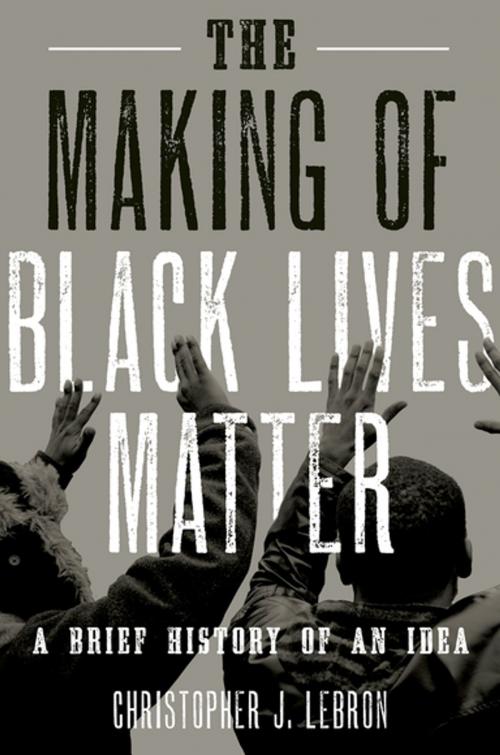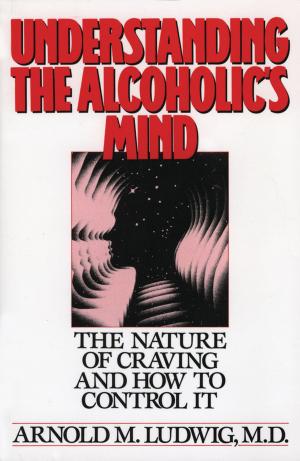The Making of Black Lives Matter
A Brief History of an Idea
Nonfiction, History, Americas, United States, State & Local, Social & Cultural Studies, Political Science, Government| Author: | Christopher J. Lebron | ISBN: | 9780190601362 |
| Publisher: | Oxford University Press | Publication: | May 1, 2017 |
| Imprint: | Oxford University Press | Language: | English |
| Author: | Christopher J. Lebron |
| ISBN: | 9780190601362 |
| Publisher: | Oxford University Press |
| Publication: | May 1, 2017 |
| Imprint: | Oxford University Press |
| Language: | English |
Started in the wake of George Zimmerman's 2013 acquittal in the death of Trayvon Martin, the #BlackLivesMatter movement has become a powerful and uncompromising campaign demanding redress for the brutal and unjustified treatment of black bodies by law enforcement in the United States. The movement is only a few years old, but as Christopher J. Lebron argues in this book, the sentiment behind it is not; the plea and demand that "Black Lives Matter" comes out of a much older and richer tradition arguing for the equal dignity - and not just equal rights - of black people. The Making of Black Lives Matter presents a condensed and accessible intellectual history that traces the genesis of the ideas that have built into the #BlackLivesMatter movement. Drawing on the work of revolutionary black public intellectuals, including Frederick Douglass, Ida B. Wells, Langston Hughes, Zora Neal Hurston, Anna Julia Cooper, Audre Lorde, James Baldwin, and Martin Luther King Jr., Lebron clarifies what it means to assert that "Black Lives Matter" when faced with contemporary instances of anti-black law enforcement. He also illuminates the crucial difference between the problem signaled by the social media hashtag and how we think that we ought to address the problem. As Lebron states, police body cameras, or even the exhortation for civil rights mean nothing in the absence of equality and dignity. To upset dominant practices of abuse, oppression and disregard, we must reach instead for radical sensibility. Radical sensibility requires that we become cognizant of the history of black thought and activism in order to make sense of the emotions, demands, and argument of present-day activists and public thinkers. Only in this way can we truly embrace and pursue the idea of racial progress in America.
Started in the wake of George Zimmerman's 2013 acquittal in the death of Trayvon Martin, the #BlackLivesMatter movement has become a powerful and uncompromising campaign demanding redress for the brutal and unjustified treatment of black bodies by law enforcement in the United States. The movement is only a few years old, but as Christopher J. Lebron argues in this book, the sentiment behind it is not; the plea and demand that "Black Lives Matter" comes out of a much older and richer tradition arguing for the equal dignity - and not just equal rights - of black people. The Making of Black Lives Matter presents a condensed and accessible intellectual history that traces the genesis of the ideas that have built into the #BlackLivesMatter movement. Drawing on the work of revolutionary black public intellectuals, including Frederick Douglass, Ida B. Wells, Langston Hughes, Zora Neal Hurston, Anna Julia Cooper, Audre Lorde, James Baldwin, and Martin Luther King Jr., Lebron clarifies what it means to assert that "Black Lives Matter" when faced with contemporary instances of anti-black law enforcement. He also illuminates the crucial difference between the problem signaled by the social media hashtag and how we think that we ought to address the problem. As Lebron states, police body cameras, or even the exhortation for civil rights mean nothing in the absence of equality and dignity. To upset dominant practices of abuse, oppression and disregard, we must reach instead for radical sensibility. Radical sensibility requires that we become cognizant of the history of black thought and activism in order to make sense of the emotions, demands, and argument of present-day activists and public thinkers. Only in this way can we truly embrace and pursue the idea of racial progress in America.















